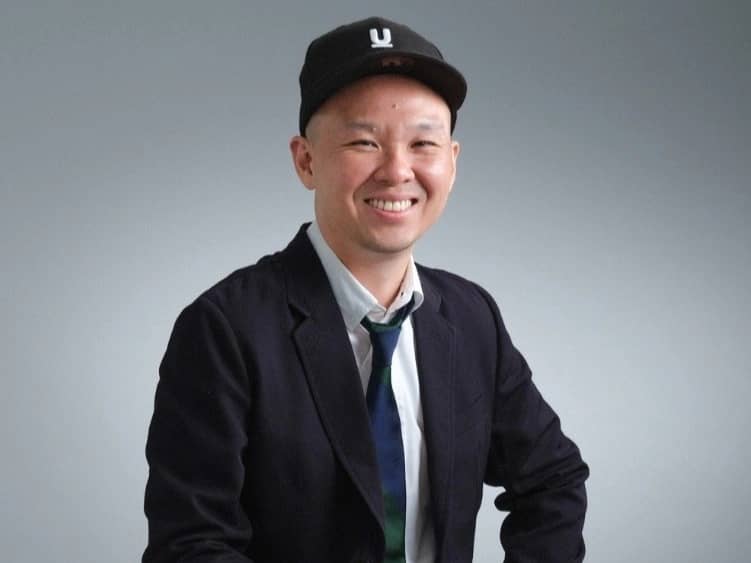订阅 wiki
Share wiki
Bookmark
Gabriel Yang
0%
Gabriel Yang
Gabriel Yang 是一位常驻新加坡的高管,也是 Arc the Community 的副首席执行官。该组织专注于亚洲的投资和项目孵化。他在金融科技和 区块链 行业拥有丰富的背景,曾在新加坡金融管理局 (MAS)、BlockShow 和 Beyond Blocks 担任职务。 [1] [2]
教育
Yang 于 1999 年至 2002 年就读于南洋理工学院,学习会计和金融。 [2] [6]
职业生涯
Gabriel Yang 的职业生涯始于亚太地区以技术为中心的组织的活动管理和业务运营。2015 年,他担任 Tech in Asia 的亚太区活动总监,随后担任 acrewhite 的亚太区经理。2016 年至 2018 年间,他担任 Seicho 的业务运营主管。Yang 于 2017 年转型进入 区块链 行业,当时他成为区块链和技术会议组织者 Beyond Blocks 的首席运营官 (COO),并一直担任该职位至 2019 年。此后,他于 2019 年至 2021 年担任另一主要区块链活动系列 BlockShow 的战略主管。
2021 年,Yang 加入新加坡金融管理局 (MAS),该国央行和金融监管机构,担任金融科技创新组的副主管。在此期间,他还积极参与组织新加坡金融科技节,专注于内容和合作伙伴关系。在 2021 年 11 月的一篇社交媒体帖子中,他指出,他花了五个月的时间在该活动中展示“有史以来最多的 加密货币 演讲者和内容”,并表示“加密货币不是即将到来,而是已经到来。”
2022 年,Yang 加入 Arc the Community,与创始人一起参与了该组织早期的共同建设。他目前担任副首席执行官,并表示 ARC 的愿景是成为“亚洲下一代投资和项目孵化的强大力量”之一。在他的职位上,Yang 参与运营管理和战略方向。2025 年 1 月,他宣布了新员工的加入,旨在改进执行流程,以“塑造 ARC 的下一个阶段”。他还传达了重要的社区里程碑,例如 2024 年 3 月结束的“Stellar mint”,这使社区成员人数超过 800 人。在 ARC 任职的同时,自 2022 年以来,Yang 还一直担任 CO92 DAO 的项目负责人。
Yang 是业内活跃的 ARC 社交者和代表。他被认为是亨利·刘(数字资产交易所 BTSE 的首席执行官)在新加坡的一次晚宴活动中介绍给 Arc the Community 的人。他还是行业会议的常客,已确认将于 2025 年出席东南亚区块链周 (SEABW) 和韩国 区块链 周 (KBW)。 [4] [5] [1] [2] [3] [7]
采访
CryptoLingo 采访 #01
2018 年 7 月 28 日,Gabriel Yang 在韩国首尔举行的 Beyond Blocks 峰会期间接受了 YouTube 频道 CryptoLingo 的采访。在这次采访中,他概述了自己的职业背景、Beyond Blocks 的发展以及他对亚洲 区块链 会议格局的看法。
Yang 解释说,Beyond Blocks 最初是帮助熟人进行 首次代币发行 (ICO) 和 区块链 项目的营销,后来转型为一个结构化的会议平台。该公司的既定目的是促进区块链项目、用户、投资者和行业专业人士之间的联系,特别强调新加坡、曼谷、东京和首尔等亚洲市场。
他指出,Beyond Blocks 试图通过不依赖常见的盈利方式(包括出售演讲席位)来区分其活动。相反,该组织强调维护活动的信誉。Yang 认为,团队的组成(包括营销、技术和活动管理方面的经验)有助于其区域活动。
在描述更广泛的行业时,Yang 将 区块链 称为处于早期和不稳定阶段,并将其比作激光影碟的发展。他表示,虽然该技术提供了可能性,但其未来的发展轨迹和采用仍然不确定。他还强调了面对面活动在行业中提供教育、社交和对话机会的作用,因为在行业中,合法性问题很常见。
Yang 表示,Beyond Blocks 打算继续调整其方法,包括活动内容和合作伙伴关系,以适应 区块链 行业不断变化的动态,同时保持其专注于在生态系统中建立联系。 [9]
Gabriel Yang 的 Web3 之旅 #02
在 The Based Show 的这一集中,ARC 副首席执行官 Gabriel Yang 讨论了他的职业背景以及他对 Web3 的看法。他解释说,他对该行业的参与是逐渐发展的,从活动销售职位开始,然后转向以社区为导向的工作。Yang 描述了他职业生涯早期的挑战,例如经常进行陌生电话拜访,并指出传统技术活动最终面临停滞。
他概述了 ARC 如何通过专注于社区形成来处理 NFT 和 Web3 领域,当时投机活动正在减少。Yang 认为,该组织强调信任、选择性会员资格和精心策划的参与,这与 Web2 更广泛的消费者模式形成对比。他还建议 Web3 应优先为参与者创造机会,而不是寻求快速、大规模的采用。
Yang 回忆了 加密货币 市场低迷的影响,包括 Terra Luna 和 FTX 的崩溃,并表示这些事件影响了 ARC 的发展,并加强了其对弹性的重视。他还对传统公司在 Web3 中的作用表示保留,称许多举措的范围有限。
在采访中,Yang 提到 ARC 打算通过精心策划的流程重新开放会员资格,推出新服务,并为会员开发产品。他将该组织描述为专为积极贡献的参与者而设计,而不是一个面向广泛受众的平台。Yang 最后分享了他对领导力、适应不断变化的环境以及亚洲在 Web3 更广泛发展中的作用的看法。 [8]
发现错误了吗?
